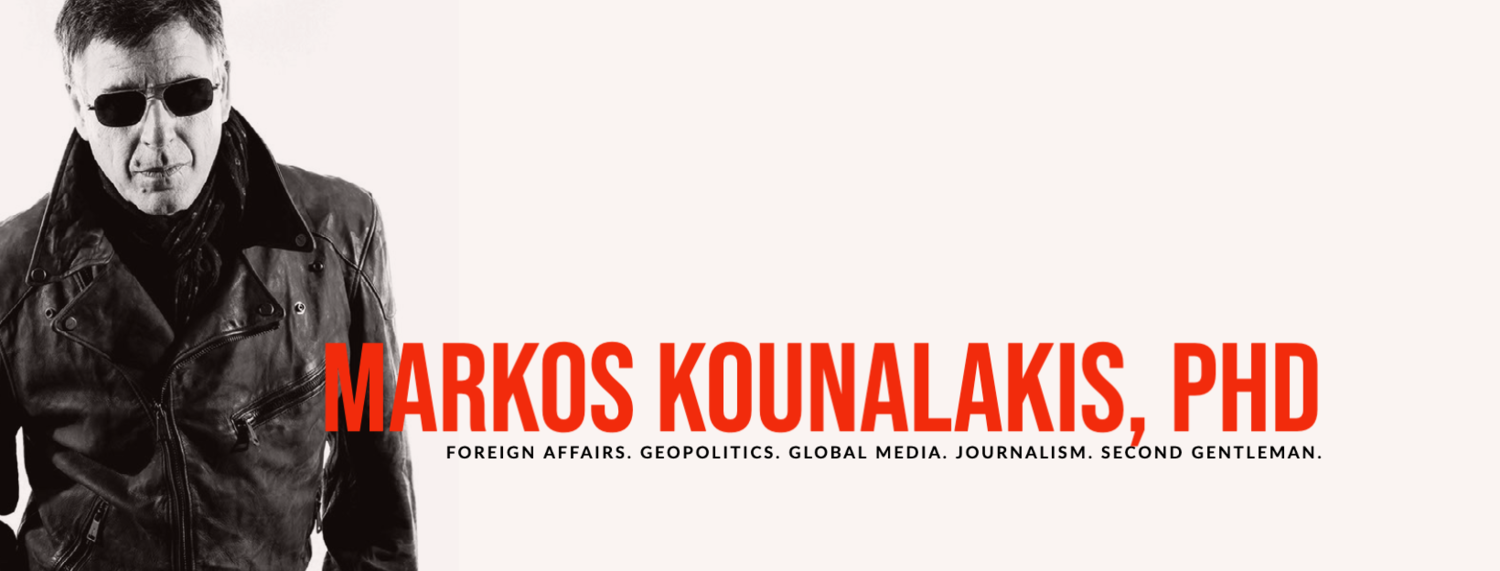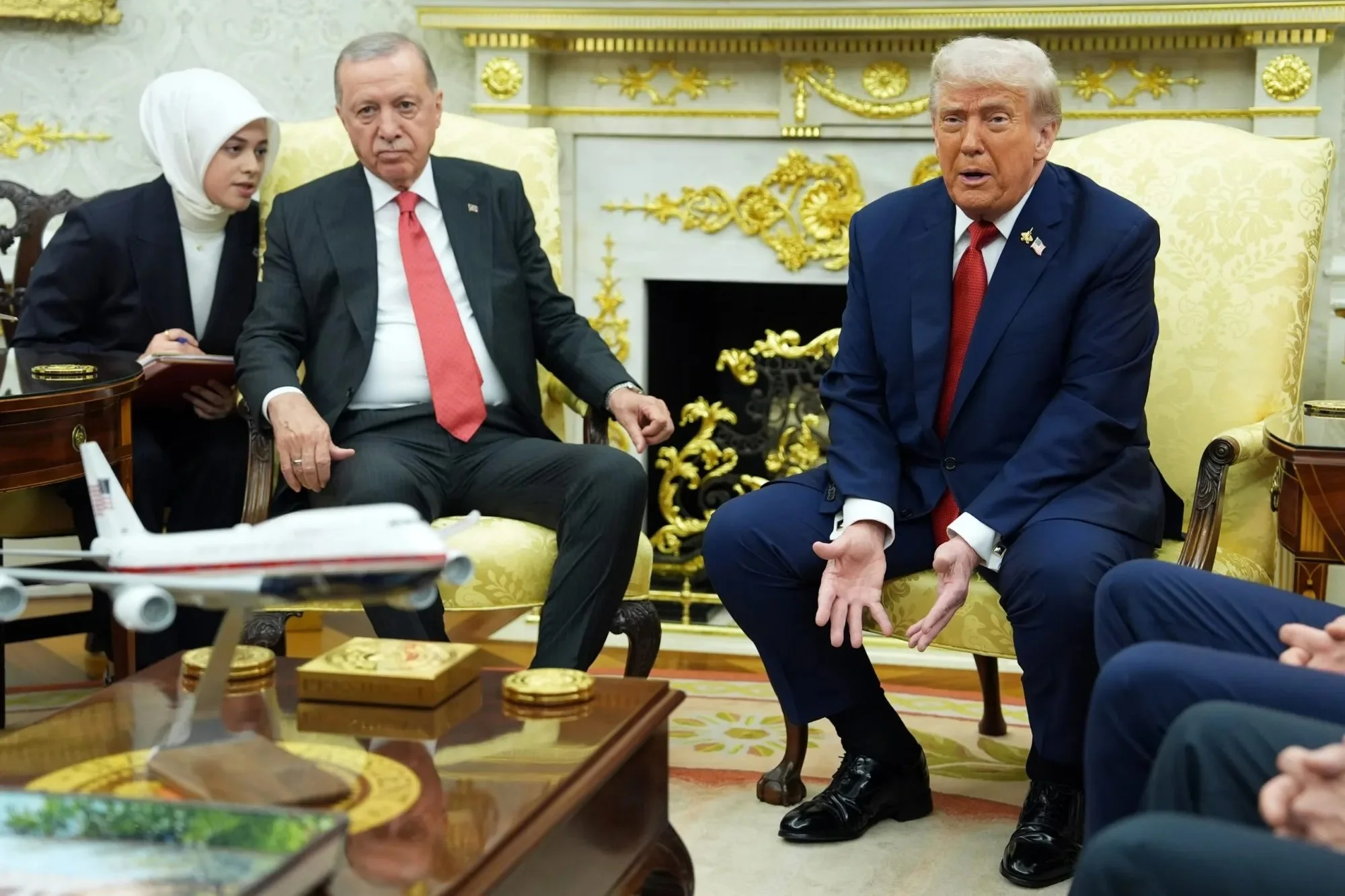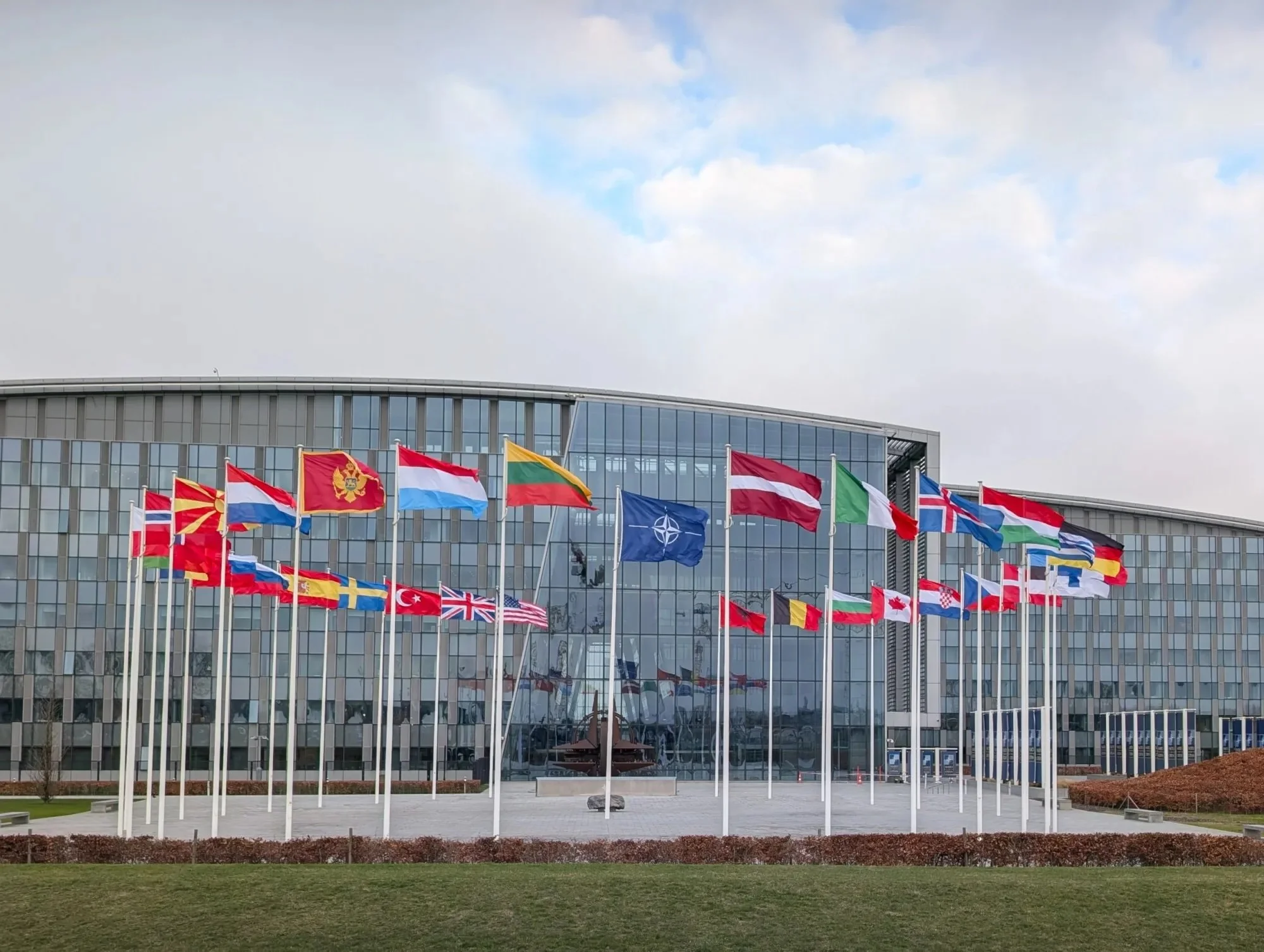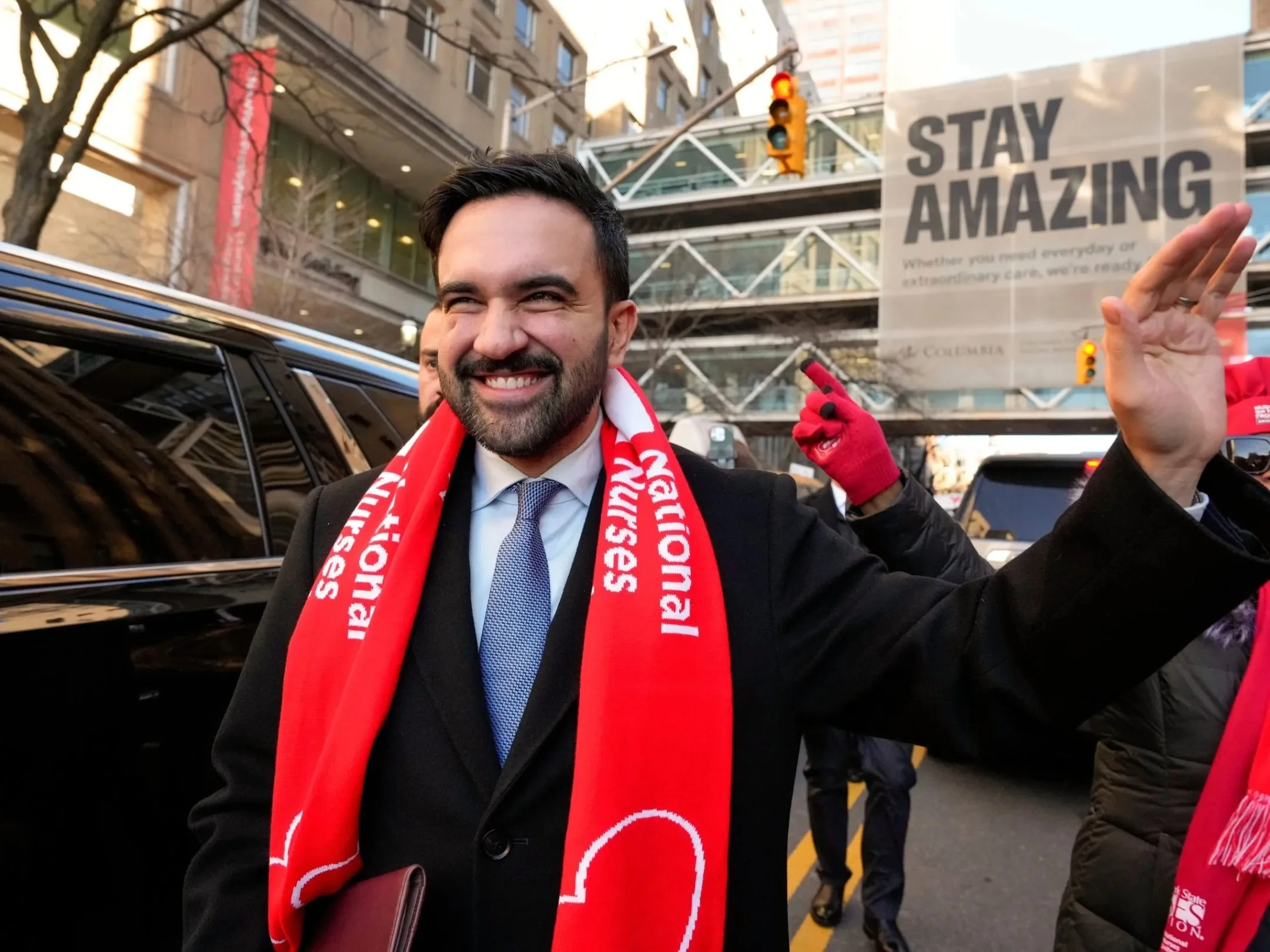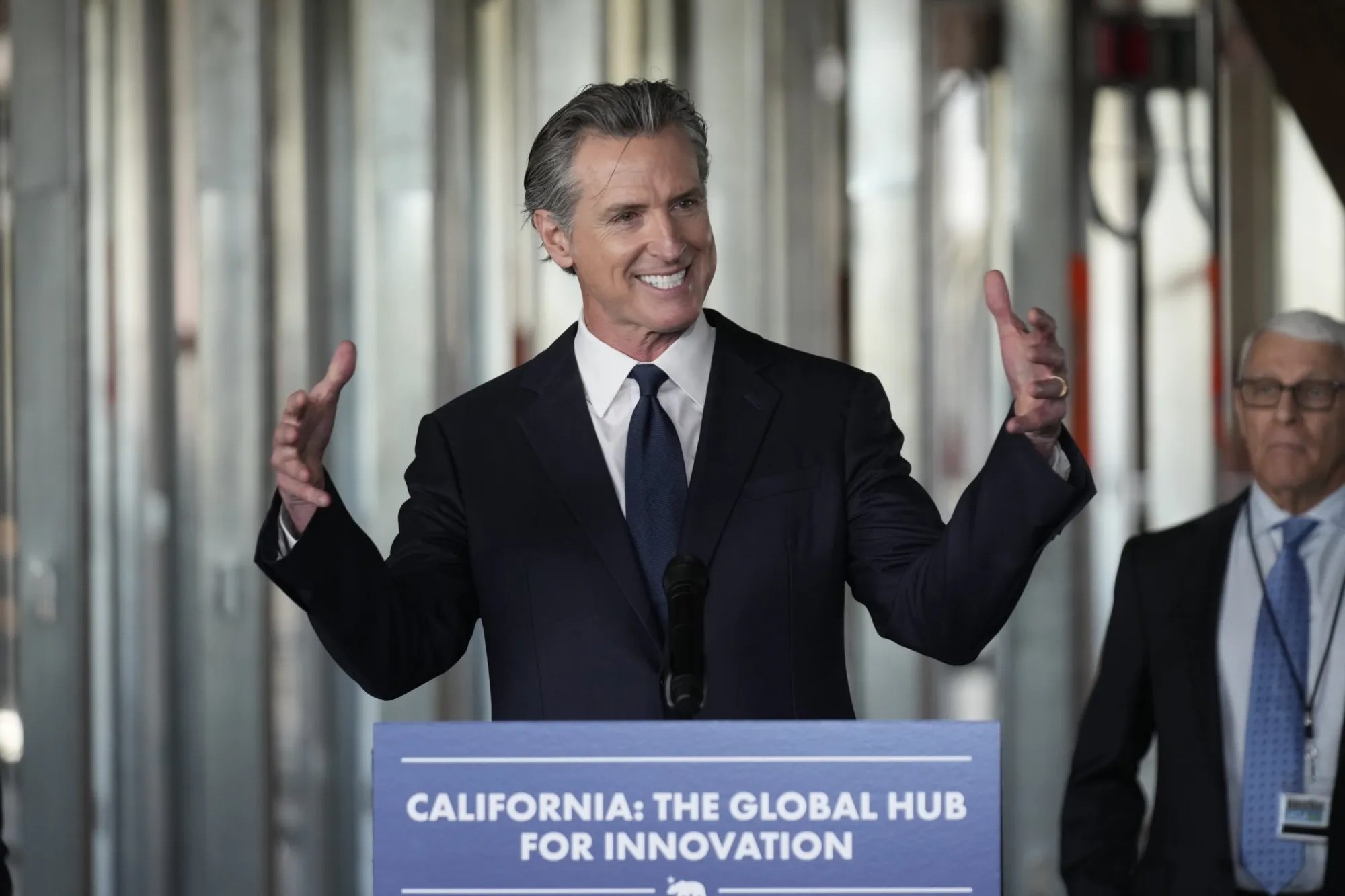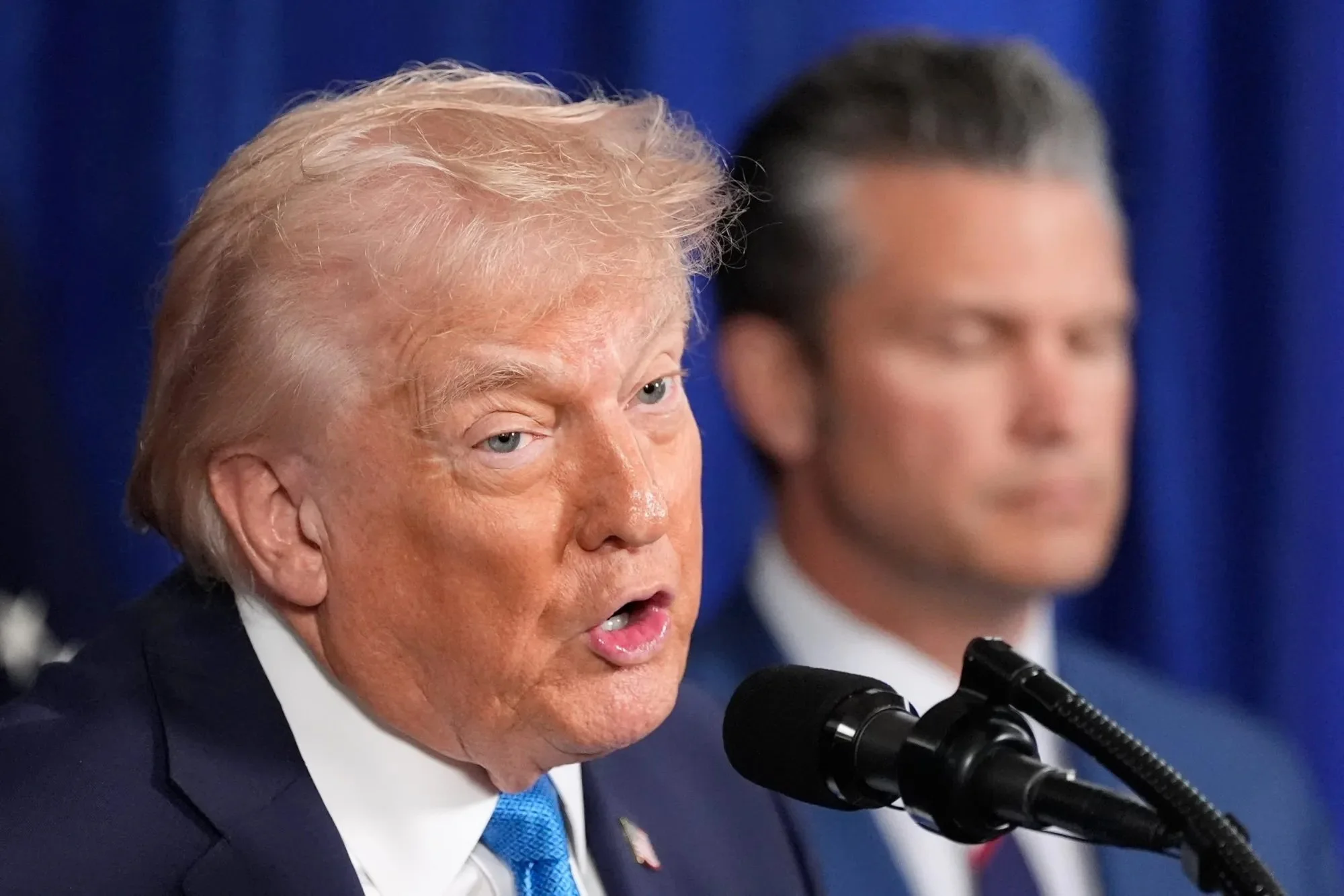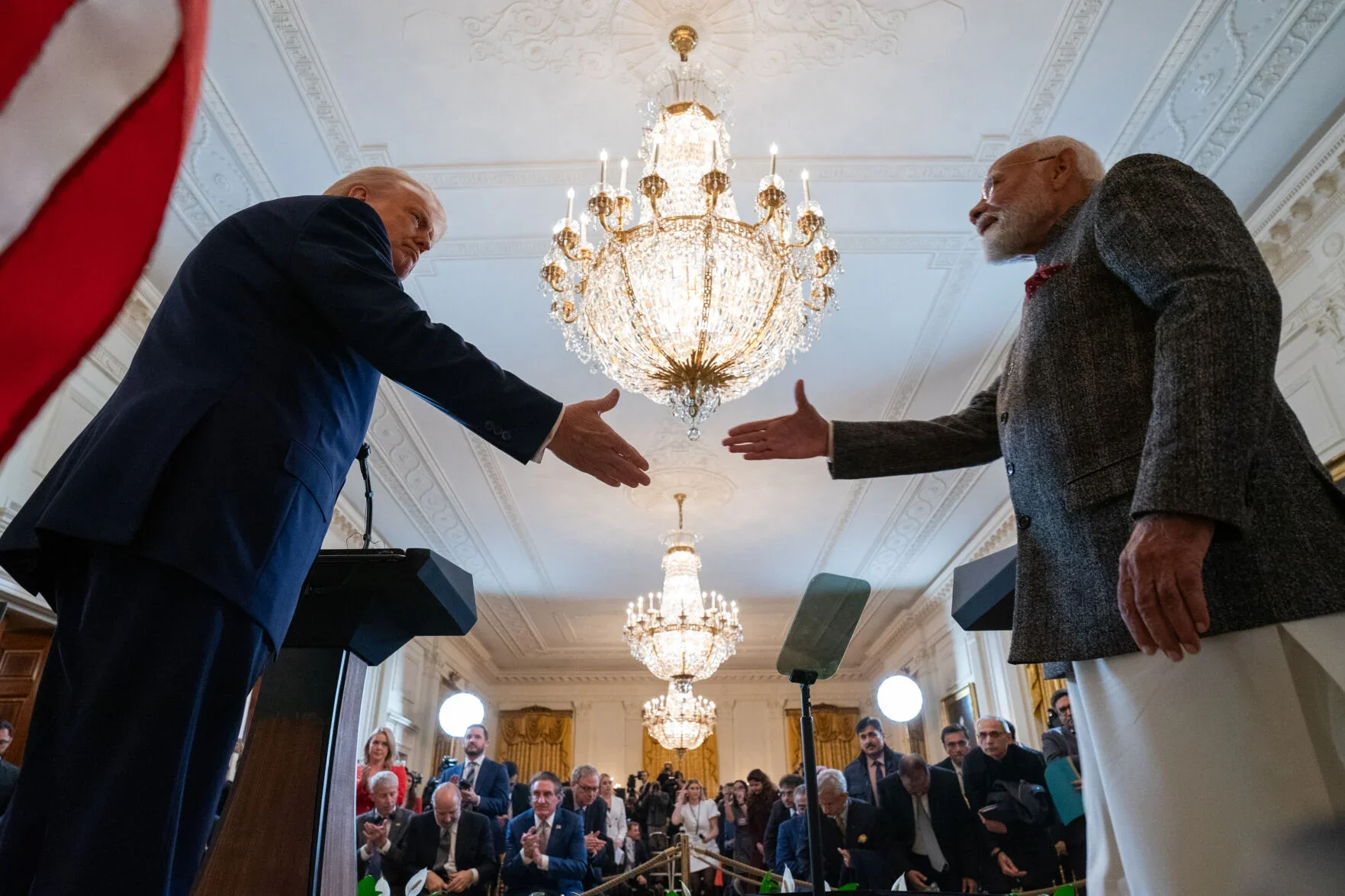Trump’s Authoritarian Envy: The Plight and Peril of a Lame Duck
hile the world was distracted, Turkey swallowed a piece of Syria. This is not a creeping occupation; it is annexation in plain sight, a brazen 21st-century conquest. Following the collapse of Bashar al-Assad’s regime, Ankara has seized effective control of approximately 9,000 square kilometers of northeastern Syria—a territory larger than Delaware and Rhode Island combined. This is no mere buffer zone patrolled by a nervous neighbor; it is a new, unofficially declared Turkish province.
The evidence of this de facto annexation is overwhelming and irrefutable. The Turkish lira, not the Syrian pound, is the official currency. Turkish-language schools, funded and staffed by Ankara, are educating Syrian children. Turkish-built hospitals, post offices, and infrastructure projects have replaced the functions of the Syrian state. Most strategically, plans are advancing for a railroad that will directly connect this resource-rich territory to the Turkish heartland, cementing its economic and strategic absorption for decades to come. All the while, Turkish troops patrol the region, enforcing Turkish rule and effectuating a brutal clampdown on the Kurdish populations, once America’s most effective partners against ISIS. READ MORE
Why Europe Needs Its Own Nuclear Deterrent
The Norwegian television series Okkupert (Occupied), also on Netflix, began with a chillingly plausible premise: a near-future Russia, with the tacit approval of the European Union, occupies Norway to seize control of its abundant North Sea oil and gas fields. (Norway, after being devastated by a hurricane attributed to global warming, elects a Green Party-ish prime minister who stops the Scandinavian country’s oil and gas production.) The drama was a meditation on sovereignty, appeasement, and the vulnerability of small nations amid resource-hungry giants. A decade ago, this was compelling fiction. Today, it reads like a prophecy laden with irony. The most explicit threat to Nordic territory comes not from Moscow’s revanchism, but from Washington’s transactionalism, with an American president coveting Greenland’s vast resources and vowing to obtain it.
Trump’s pressure to wrest this autonomous territory from Denmark underscores a terrifying truth: the foundational premise of the post-war order is dead, as Canadian Prime Minister Mark Carney eloquently made clear.) That the United States would protect the territorial integrity of its allies is no longer guaranteed. As my Hoover Institution colleague, the historian Timothy Garton-Ash, recently diagnosed our era with brutal clarity, “The West is history. Muscle up for a post-Western world of illiberal international disorder.” READ MORE
The Tip Is the Distraction, and the Wage Is the Scandal
Gesturing, I caught the waiter’s attention to pay my restaurant bill. He hustled over and brought with him the now-ubiquitous handheld payment device. I tapped the prompts and noticed something unsettling. The suggested tip amounts—20 percent, 22 percent, 25 percent—were calculated not on the subtotal for the food and drink, but on the grand total, a number bumped by 8.625 percent state and local sales tax in San Francisco and, in the case of my burger, an additional 6 percent city-mandated health charge to help pay for restaurant workers’ health insurance.
This is a tip-on-a-tax, a surcharge on surcharges. Let me be clear: As a former waiter, I am not critical of the hardworking people who depend on tips. I once depended on them, too. I believe in tipping generously. My objection is to the software and the business decision behind it, which inflate the basis for the tip and, in turn, the swipe fees that go with it. This sleight of hand, much like shrinkflation, erodes trust by banking on the inattention we give to modern transactions. The solution is simple: point-of-sale (POS) systems should be programmed to calculate gratuities on the pre-tax subtotal. “No tips on tax” should be a principle of consumer fairness. READ MORE
Mamdani: The Unique Voice of NYC’s First African-Born Mayor
The job is local. The platform is global. This is the fundamental paradox facing every mayor of New York City, a metropolis of 8.5 million souls that also serves as the de facto capital of the world, and the home of the United Nations with its 193 member states. Most nations have U.N. offices in New York as well as missions. It’s arguably the most diverse city on earth, with 180 languages spoken in its public schools.
While the quotidian duties of New York City’s mayor require an obsessive focus on sanitation and safety, subways and schools, the city’s role as U.N. host and its continued role as the world’s financial center thrust its leader onto a geopolitical stage. New York’s new mayor, Zohran Mamdani, its first foreign-born mayor to be elected in over 50 years, understands this duality better than most. The question is how he will wield it. READ MORE
As Washington Falters, California Leads the Way on Scientific Research
The government and its people are bound by a compact: Citizens finance their government, delegate it life-and-death powers, and expect security. This is not just a military or police matter; it also concerns protecting public health through vaccines, food inspection, and cutting-edge scientific research. In recent decades, however, Washington has frequently abdicated this core responsibility, paralyzed by ideology or incompetence, leaving a vacuum. Invariably, California steps in to fill it.
This is not a story of partisanship or the most populous state using its clout. It is pragmatic self-preservation and strategic foresight. When Washington falters, California—leveraging its economic might, its world-class institutions, and its people—acts as a de facto nation-state to safeguard its future and the rest of the nation’s, whether through auto emissions or food safety. This trend reveals a critical shift in the American federalist system, where a single state has become an essential backstop for national progress. At the time of the Republic’s founding, the population difference between the most and least populous states was 10 to 1. Now it’s over 70-to-1. READ MORE
Venezuela and the Dawn of the Don-roe Doctrine
Nicolás Maduro is in American custody. With that simple fact, the Western Hemisphere’s geopolitical landscape has irrevocably shifted. The United States has crossed a threshold, trading years of sanctions and diplomatic pressure for swift, decisive military action. This is a historic pivot, a moment that will be studied for decades, not only for its impact on Venezuela but for what it signals about the future of American power in its hemisphere.
In a recent conversation, my friend, Leopoldo López, the Venezuelan opposition leader in exile, cut straight to the core of this complex reality. He reinforced the U.S. administration’s framing of the operation: this was not a war against a nation, but a judicial action against a “criminal” who had held 30 million people hostage. It is a critical distinction, one that seeks to legitimize an otherwise fraught intervention. READ MORE
NATO’s Myopic Accounting Ignores Maritime Superpower Greece
America just skipped December’s NATO foreign ministers’ meeting. That’s a first in over two decades. Part of the reason is the alliance’s irrelevance to President Donald Trump’s personalized, high-stakes peace negotiation to end the Russia-Ukraine war. Another is likely the administration’s weariness over Europe’s anemic defense spending. The alliance’s current 2 percent of GDP benchmark has long been a source of transatlantic friction. It is also a dangerously simplistic metric that measures inputs, not outputs.
The benchmark quantifies treasure, not strategic capability, and overlooks one of the most critical (and undervalued) contributions allies can make: maritime power—specifically, commercial sealift capacity. There is a solution. READ MORE
Five Eyes Become Three Blind Mice
George P. Shultz, the late Secretary of State, regularly reminded me and my Hoover Institution colleagues that in diplomacy, “trust is the coin of the realm.” Trust is even more critical in intelligence sharing. Without it, even the most sophisticated satellites, signals intercepts, and cyber tools are just expensive toys.
For decades, the Five Eyes alliance—the United States, the United Kingdom, Canada, Australia, and New Zealand—has relied on trust as its currency across oceans and governments. Born of World War II code-breaking cooperation and formalized in the UKUSA Agreement of 1946, the network of English-speaking nations and bilingual Canada became the world’s most durable intelligence partnership, fusing shared values with shared secrets. But the trust account now looks overdrawn on our side of the ledger. The shortfall isn’t just an accounting technicality—it threatens the alliance’s utility and credibility. READ MORE
Make California a G7 Member
Donald Trump may have personally run exclusive clubs, but America, under his presidency, is dropping its membership in global clubs left and right. His administration recently severed our ties to the World Health Organization (WHO) and the United Nations High Commissioner for Refugees (UNHCR), as well as other organizations where countries collaborate on addressing borderless challenges and opportunities. In the last week, the Trump administration has been absent from the COP 30 Climate Summit in Brazil. It has no plans to attend the upcoming G-20 meetings in South Africa, which will bring together the world’s largest economies.
In this moment, as America retrenches from global leadership, cities and states need to step up and join as many multinational organizations as will have them. Whether staying in the Paris Agreement on climate or coordinating with global health organizations to head off the spread of bird flu, measles, and AIDS, subnational actors need to fill the vacuum Washington is creating. Moving fast and breaking things has consequences. READ MORE
H-1B fee kills two birds — and America's golden goose – with one stone
President Donald Trump has found yet another way to weaponize immigration: a $100,000 fee for new H-1B visa applicants. The policy lets POTUS kill two birds with one stone: By targeting mostly India, he also gets to punish California.
Take that, Prime Minister Narendra Modi and Gov. Gavin Newsom! To Trump, a noncompliant Modi is an irritant, and a trolling Newsom is a rival.
Most workers on H-1B visas come from India, and — unsurprisingly — the majority come to where opportunity is best: California. They are educated, trained and highly skilled employees who work in America’s fastest-growing industries in San Francisco and the Silicon Valley. READ MORE
Venezuela’s Best Chance for Freedom
Venezuela’s tragic collapse from petrostate to failed state has a name: Nicolás Maduro. His first stolen “reelection” in 2018, dismissed globally as neither free nor fair, sealed the fate of a nation now hollowed out and starving. It’s time for him to go. Whether by negotiated exit or the combined weight of domestic defiance and American pressure, his departure is both morally justified and strategically essential. READ MORE
India, Ukraine & China - Inside the Issues
Dr. Markos Kounalakis, a visiting fellow at Stanford University’s Hoover Institution and an expert in international and foreign affairs, breaks down the shift in US and India relations amid President Trump’s tariffs.
Kounalakis also shares the latest on the Russia-Ukraine war on "Inside the Issues."
The Geopolitics of Trade Wars
“Inside the Issues” host Amrit Singh speaks with Dr. Markos Kounalakis of Stanford University’s Hoover Institution to discuss the latest on President Donald Trump’s tariff policy and its impact on the global stage. Plus a look at the ongoing Ukraine-Russia ceasefire talks.
